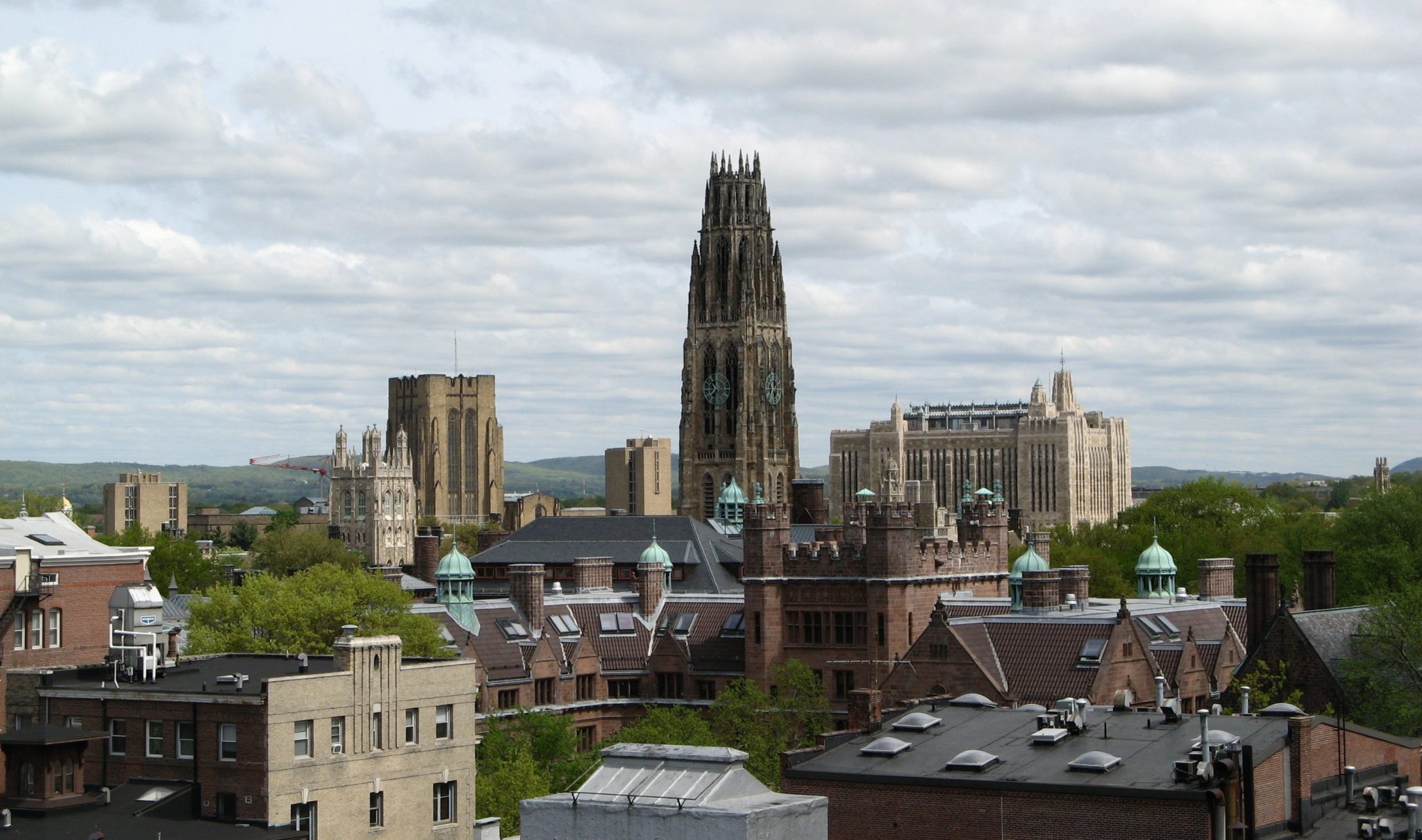
Wikimedia Commons
Yale cancelled the final session of the annual Yale Model United Nations conference on Sunday after the Centers for Disease Control and Prevention ordered a student from China who exhibited flu-like symptoms to be tested for the rapidly-spreading coronavirus.
The high school student, who had a cough and fever, tested positive for influenza at Yale New Haven Hospital Saturday evening. The student has since been released from the hospital and is isolated until the CDC can determine whether the individual has the 2019-nCoV infection. The test results should be released in the middle of this week, according to an email from Paul Genecin, director of Yale Health.
“We are working closely with campus partners as well as the Connecticut Department of Public Health to track the overall situation around the coronavirus and to protect the health and wellbeing of the Yale community,” Genecin said in an email to the Yale community.
The 2019-nCoV, a new strain of the coronavirus, originated in Wuhan, China and has killed over 56 people around the world. China has attempted to contain the disease, locking down more than 11 million residents of Wuhan.
Following the student’s influenza diagnosis, Yale College Dean Marvin Chun requested on Saturday night that YMUN cancel all activities scheduled for the final day of the conference. Chun said the University is collaborating with public health officials to “develop contingency plans should we need them.”
Genecin informed Yale students and faculty of the YMUN student via a Sunday morning email. That message followed a prior announcement last Friday, which said the Centers for Disease Control consider the American public to be facing a “low” health risk.
“While Yale regrets that the participating MUN students will not be able to complete their conference’s program, we feel it to be in the best interest of those students and of the Yale community to take this precaution,” Genecin wrote in his email to the Yale community.
Brett Lindenbach, associate professor of Microbial Pathogenesis and of Comparative Medicine, said that the student’s symptoms are likely due to influenza.
“I would tell people not to panic, not to worry,” Lindenbach said. Though having the flu does not rule out the possibility that the student also has the coronavirus, Lindenbach said, “it would seem unlikely” the student had both illnesses. “That would be some bad luck.”
Chun advised Yale students to proceed with their studies and activities as normal.
Kristin O’Donoghue, a senior at the Marymount School and who participated in YMUN, said she was enjoying the conference until its cancellation. Still, she agrees with the University’s decision to send delegates home early, O’Donoghue said.
“I think it was better that if there was even the threat of contamination that they do all in their power to prevent its spread,” she said.
YMUN released a statement at around 2:00 a.m. on Sunday that it would cancel all committee sessions, transportation and closing ceremonies due to “unforeseen circumstances.” The organization divulged the reasoning behind the cancellation late Sunday morning, after Genecin had issued his official announcement.
Campbell Pflaum, a freshman at Choate Rosemary Hall and delegate at the conference, said that though she understood the reasoning behind Yale’s decision to cancel the final day of the conference, the change caused significant panic for the delegates involved.
“It displaced a lot of people and changed a lot of travel plans,” she said. “While I do understand the reason why Yale made that decision, … I think it could have been handled in a more calm, deliberate way.”
An email obtained by the News that was sent to all YMUN Chairs and Vice-Chairs from the conference’s Director General of Committees forbade the Yale students from sharing details about the cancellation beyond those in Genecin’s statement. “If any delegates or advisors ask for information, you may not disclose any information beyond the contents of the official announcement from Yale,” the email read. Yale Model United Nations Secretary General Aki Dhadda ’21 said Yale University informed the Yale Model United Nations secretariat that they must re-direct any requests for comment to the Yale Office of Public Affairs and Communications.
The University will alert delegates and members of the Yale community about the results of the CDC’s test in the middle of the week.
Lindenbach explained that the test for the coronavirus is typically slower and less standard than that of other illnesses. Currently, the test for the virus is specialized, Lindenbach said, explaining that doctors do not test patients for the virus unless they think they may be infected. Scientists have sequenced the virus and look for the viral genome directly in potentially infected patients.
“The diagnostic test that’s currently being used is very experimental and it’s not something that’s been approved through testing in millions of people,” Lindenbach said.
He advised members of the Yale community that they can prevent the virus’s spread by employing the same tactics they use to protect themselves from more common strains of the coronavirus, including ones that can cause the common cold. Because the 2019-nCoV strain of coronavirus likely spreads through the air, people can protect themselves by wearing masks and washing their hands.
The Connecticut Department of Public Health could not be reached for comment as of Sunday night.
Rose Horowitch | rose.horowitch@yale.edu
Correction, Jan. 27: A previous version of this article misstated the number of residents in Wuhan.
Clarification, Jan. 27: This article has been updated to clarify the contents of the Director General of Committees’ email and the circumstances surrounding the announcement of the cancellation.







